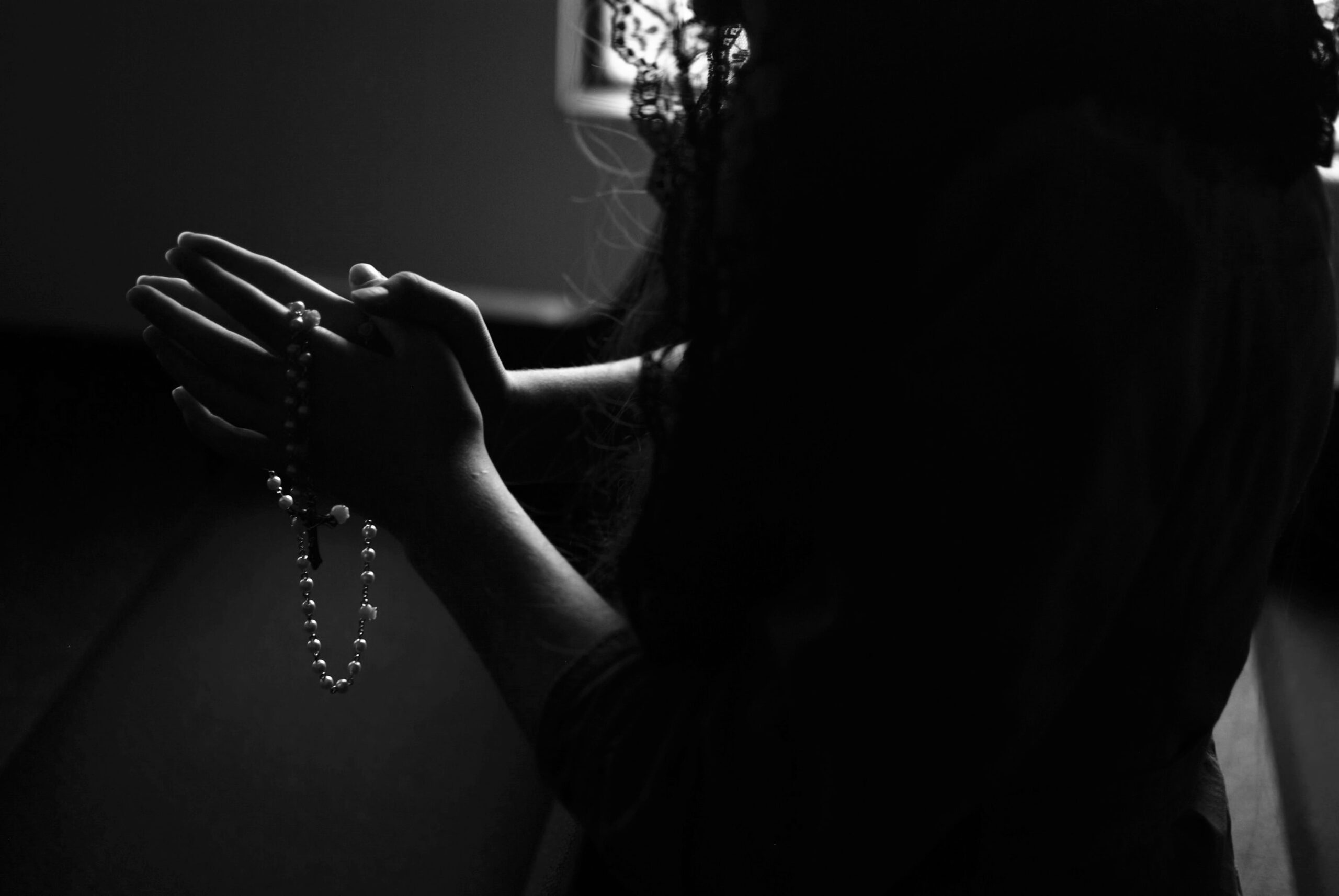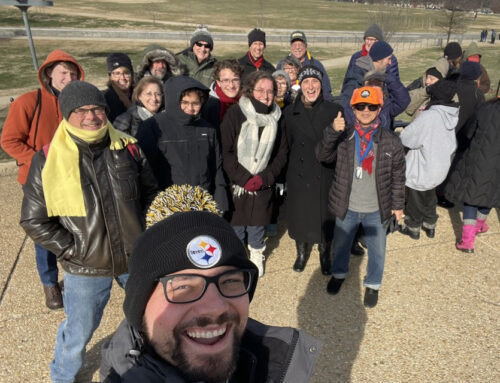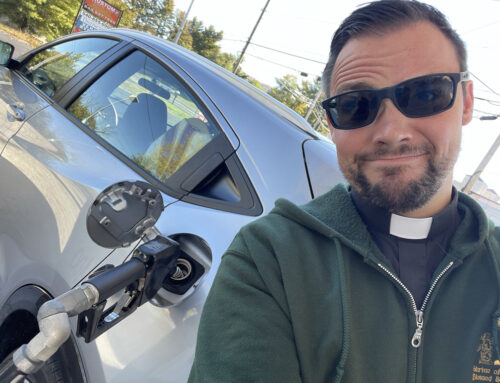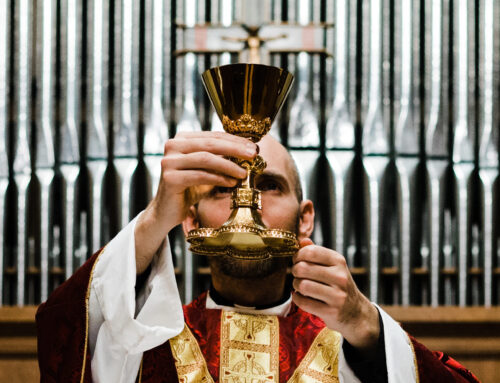The following question is sure to make pretty much every single one of us squirm a little bit… But here goes nothing… I’ll ask it anyways:
“How is your prayer life going?”
Like, really? Beyond praying grace before meals? Beyond coming here to mass for an hour every Sunday? Beyond the sort of obligatory, memorized prayers that you have a habit of praying, maybe since you were a kid? How is your prayer life going?
It is kind of an uncomfortable question. And whenever I ask it in a meeting or in the confessional, the person across from me invariably stammers a little bit, shifts in his or her seat, sighs, and after some beating around the bush, responds with something like:
“Well, I guess I could pray more.” — or — “Ya know, Father, it should be a lot better than it is, I guess” — or — “I used to pray all the time, but now”
The words trail off from there…
I don’t bring this up to make anyone here feel bad. They convict me too. Quite the contrary, I share this because I want to encourage you, that if you do feel this way, that your prayer is lacking something — that you’re not alone.
In fact, the reality is that MANY of us, in this church right now, have this vague feeling of regret about the way or the amount that we pray. And I’d just like to point out right here, right now, from this pulpit —
That God wants to teach you… YES, YOU… how to become an expert at prayer!
Now that probably sounds intimidating, but it’s actually not. My favorite definition of prayer is this: “Wasting time with God.”
St. Teresa of Avila, one of the Church’s foremost experts in prayer, once said that contemplation or mental prayer, in her opinion (which is a pretty good opinion… she’s a Doctor of the Church) is nothing but “an intimate sharing between friends; it means taking time frequently to be alone with Him who we know loves us.” That is what we are all are being invited to share in when the Church says we need to pray.
But this sort of intimate friendship (like any other relationship) takes time, patience, and concerted effort to cultivate. It takes deliberate investment. It won’t happen magically. You won’t accidentally become a great friend with God. You won’t accidentally become an expert in prayer.
And that’s why I think it’s fitting that today — as the Diocese of Richmond marks the end of our Bicentennial celebration — that we meditate on Mary, Mother of the Church.
That’s because Mary teaches us how to pray.
We see this already in action in that second reading we just heard from the Acts of the Apostles.
This passage comes just after the Resurrection and Ascension of Jesus, where we find the disciples returning once again to that famous Upper Room: The same place where only a few days earlier they heard Jesus say for the first time: “This is my Body, this is my Blood.”
And what do they do in the Upper Room?
Do they set about being “useful and productive” in the worldly sense of the term? Do they divvy up which apostles will go to which corner of the earth? Do they form evangelization subcommittees? Do they conduct an intensive scholarly Bible study? Do they organize a soup kitchen?
No… it may surprise us that they don’t do any of these things!
Instead, the Scriptures say: “All these devoted themselves with one accord to prayer… together with Mary, the mother of Jesus.”
This is the newborn Church at its source — it takes on Mary’s own posture of receptivity and urgent longing: “Let it be done unto me according to your word!”— In this tiny snapshot, we get a clear glimpse of that what it means to be Church and thus, what it means to be a Christian is to be totally, completely devoted to prayer.
To be experts in prayer!
Evidently, PRAYER is what Jesus’ teaching and preaching impressed upon those first Christians most emphatically.
And that would make sense, because throughout his public ministry, Jesus constantly withdrew to deserted and lonely places to pray. He taught his disciples firsthand that life just doesn’t make sense unless you pray regularly. That means finding…or rather, MAKING… time to pray. It means setting an appointment with the Lord, and then showing up consistently.
Now this is nonnegotiable stuff: To be a follower of Christ is to follow Him into His own prayer… into His own relationship with the Father of mercies. This reaches a climax in the Sacrifice of the Mass — which is Jesus’ prayer to His Father. His self-offering to God on our behalf. And we are swept up into that offering of Jesus… that prayer of Jesus!
But let’s not forget that even Jesus had a teacher when it came to prayer!
I help lead our young adult group here at St. Andrew’s, and just this past Monday night we discussed the part in the Catechism where it says very beautifully that Jesus himself learned the rhythms and formulas of prayer “from his mother, who kept in her heart and meditated upon all the ‘great things’ done by the Almighty.”
Ponder that for just a moment: Mary taught Jesus how to pray.
Perhaps you can relate to this? So many of us probably remember our own mothers teaching us to pray. I know I can still vividly picture my mom teaching me the Our Father as she tucked me into bed one night. My grandmother, too, taught me prayer as she painstakingly kissed ALL the holy images in her apartment before taking my sister and me to Dunkin Donuts to get munchkins. These memories still hit me hard, and to think that Jesus also has memories like this — of Mary showing him the great traditions of Jewish prayer — is just… astonishing.
Mom’s teach us how to pray. And Mary — who is “a peerless model of contemplation” as Pope Benedict XVI once put it — teaches us how to pray, too!
But unfortunately, part of Mary’s task with us at least, is to also help us UNLEARN some of the bad things we’ve picked up from bad teachers we’ve had…
Look no further than our first reading from the book of Genesis. Our primordial mother, Eve, the mother of all the living, and yet what does she teach us? She taught us the OPPOSITE of prayer, didn’t she? If prayer is wasting time with God, then Eve unfortunately taught us how to waste time with the Devil.
And ever since, we, too, have had a much easier time having conversations that exclude and ignore God and His plans for our lives. We talk about movies and tv shows freely enough. We talk gossip. We talk politics. We talk about restaurants, breweries, hobbies, and all matter of other stuff — We spend hours binging Netflix without a second thought, but then we try to sit down for 20 minutes of prayer, and BOY do those minutes tick by! We are uncomfortable with prayer for some reason…
Or try this and see what happens: Invite someone to pray with you! You will quickly find that even among stalwart, cradle-Catholics a kind of deep awkwardness that is almost unbearable.
WHY? Why is prayer, which is intended to be our unifying life-breath, a powerhouse for calling down God’s blessings, and the foundation of an everlasting friendship with the Lord of Glory — Why is THAT so painfully weird and awkward for us?
Because… we’re not experts in prayer… Not yet, anyways!
We need our mom to teach us how to pray. We need the Blessed Mother to gently reintroduce us to the joys and rhythms of wasting time with the Lord who loves us so well. And she, by the way, is thrilled to help us.
Thankfully, Jesus knew we would need a mom, too. And from His Cross, he gazed down and whispered to John, the Beloved Disciple:
“Behold, your mother.”
Behold your mom! Think of that moment when John the Evangelist first heard those words. He must have felt compelled to look at Mary.
And what did he behold there, but a powerful woman, rapt in prayer? He saw in the face of Mary sorrow and pain, yes — but also an unshakeable faith. He saw an Immaculate Heart, cracked wide open, being pierced along with her Son’s Sacred Heart. He saw the image of the entire Church at prayer — wounded, standing beneath the Cross — and yet unconditionally devoted to God for whom NOTHING is impossible.
He saw the battle of prayer in action in the person of Mary, he saw the antidote to Eve’s disobedience — He saw the drama of a human being radically receptive and ready to do God’s every bidding. He saw a human person, fully alive, alert and listening, expecting a Word spoken by her God. Mary hung on every word from her Son, even as Jesus hung from his Cross.
And so — as we ponder THAT woman, that woman of prayer, I ask again:
“How’s your prayer life going?”
I’d like to end this homily with some practical steps you can take if you want to pray better. These come from St. Francis de Sales, a Doctor of the Church and an expert in prayer:
- Place yourself in the presence of God — remember that He is near, not far away. You can do this at home or in the chapel.
- Ask the Lord for help in paying attention to Him!
- Pick out a passage of Scripture to meditate on — Maybe even imagine yourself in that story…
- Ponder the passage, not because you want to “know more” or “study” it, but from a desire to increase your love for God.
- If gratitude for God’s mercy, awe at His majesty, sorrow for sin, a desire to be more faithful come to you — yield to those thoughts and movements. Hand yourself over.
- Come to some practical resolutions concerning the changes you’d like to make in response to those movements or inspirations.
- Take action. We can’t let our contemplation and our thoughts stay in the chapel… We can think about virtues all day long. We can think about good resolutions all day long. It can all be in our head, and we might think we’re saints… when we’re not. It needs to spill out into the rest of your life!
I think if we embody some of this and other recommendations from the saints of our Tradition, then we will become a Church that has a more deeply Marian Heart — an Immaculate Heart that is always open, always receptive to the Holy Spirit. Always listening — always ready to take what she hears and put it into action.
That’s my prayer for this Diocese as we move into our third century. That we would entrust ourselves to Mary, and ask her to teach us how to pray — how to become EXPERTS in prayer.





Thought-provoking; words from your heart and your knowledge of our faith. Thank you!